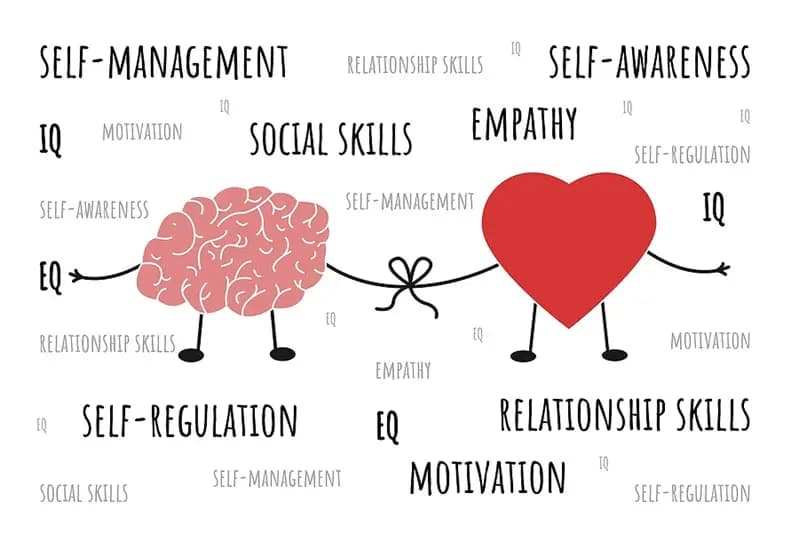5 Key Components of Emotional Intelligence Explained

Emotional intelligence (EI) is the ability to recognize and manage one's own emotions, as well as the emotions of others. It is a critical skill for personal growth and success in all areas of life, including relationships, career, and personal well-being. In this article, we will explore the five key components of emotional intelligence and how they can help you improve your emotional intelligence.
1. Self-Awareness
Self-awareness is the ability to recognize one's own thoughts, emotions, and behaviors. It involves being able to identify and understand your own feelings, as well as the impact they have on your behavior. When you have self-awareness, you are able to reflect on your own emotions and understand what is driving them. This can help you make more informed choices and take responsibility for your actions.
2. Self-Management
Self-management is the ability to regulate your emotions and behaviors. It involves being able to control your thoughts, emotions, and behaviors in order to achieve your goals. When you have self-management, you are able to manage your emotions and behaviors in a way that is appropriate for the situation. This can help you stay focused, productive, and effective in all areas of your life.
3. Social Awareness
Social awareness is the ability to recognize and understand the emotions and behaviors of others. It involves being able to understand the impact of your own emotions and behaviors on others, as well as the impact of others' emotions and behaviors on you. When you have social awareness, you are able to understand and relate to others in a way that is empathetic and compassionate. This can help you build strong relationships and communicate effectively with others.
4. Relationship Management
Relationship management is the ability to manage relationships in a way that is healthy and productive. It involves being able to navigate the complexities of relationships in a way that is respectful, honest, and responsive. When you have relationship management, you are able to create and maintain healthy relationships that are beneficial for both parties. This can help you build strong connections with others and create a supportive community.
5. Resilience
Resilience is the ability to bounce back from difficult situations and challenges. It involves being able to adapt, overcome, and recover from setbacks and adversity. When you have resilience, you are able to handle difficult situations with grace and strength. This can help you build a strong and resilient mindset that is able to withstand the challenges of life.
Emotional intelligence is a complex and multifaceted skill that requires attention, effort, and practice. By understanding and developing the five key components of emotional intelligence, you can improve your ability to recognize, manage, and navigate your emotions in a way that is healthy and productive. With the right attitude and commitment, you can build a strong foundation of emotional intelligence that will serve you well throughout your life.
Remember, emotional intelligence is not something that can be achieved overnight. It takes time, effort, and practice to develop and improve. But with persistence, dedication, and a willingness to learn, you can build the emotional intelligence you need to thrive in all areas of your life.
By understanding and developing your emotional intelligence, you can create a more fulfilling and meaningful life for yourself. With the right attitude and commitment, you can nurture your emotional intelligence and build the foundation for a strong, resilient, and happy life.
emotional intelligence developmentself-awareness techniquesself-management strategiessocial awareness skillsrelationship management tipsresilience exercisesemotional intelligence for personal growthemotional intelligence for successemotional intelligence for relationshipsemotional intelligence for careeremotional intelligence for personal well-being





